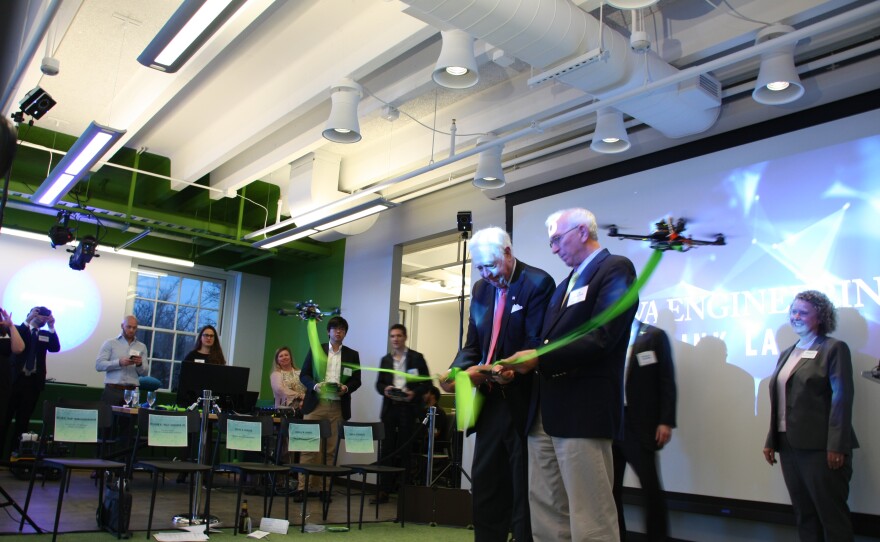The University of Virginia on Thursday unveiled a brand new 17,000 square foot research lab aimed at connecting the cyber world with the physical.
It’s known as CPS, or cyber physical systems. It involves technology like drones, autonomous vehicles, surgical robots and smart cities.
The new $4.8 million space at UVA’s engineering school, known as the Link Lab, will be home to more than 30 teachers and 100 graduate students who are for the first time, all under one roof. “In order to be good at CPS, you need to be cross-disciplinary,” says Jon Goodall, the associate director of the Link Lab. “While we were each advancing different ideas in our own departments before, we just didn’t get together often enough. And now we’re kind of forced to talk.”
Sure, drones and virtual reality systems are fun. But the real trick, says Goodall, is making the leap into the real world with real problems. How can engineers help fight climate change, for example? That’s what recently landed Goodall and five other faculty from five different departments a $4.4 million grant from the National Science Foundation.
“Can we do a smarter job at managing all the runoff that happens so that streets don’t flood as frequently as they do now?” asked Goodall.
People might associate cyber physical systems with the wealthy, but this grant is aimed at some of the most vulnerable areas of Norfolk.
“It’s very common that within coastal cities, the low-lying parts of the city are the poor parts of the city,” said Goodall.
On Thursday, more than 100 people showed up to the Link Lab’s opening, which wouldn’t have been complete without a ribbon cutting. Humans held the scissors, but about 8 feet apart, two drones lifted off the ground, holding between them, the ribbon.



